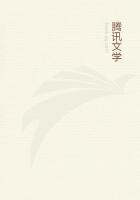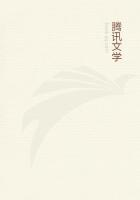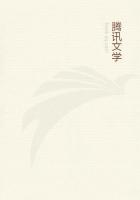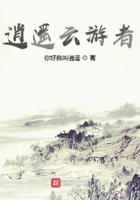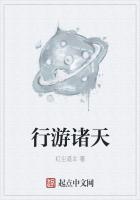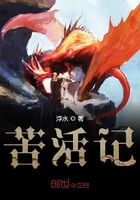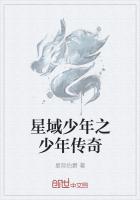This, then, is the plastic part of literature: to embody character, thought, or emotion in some act or attitude that shall be remarkably striking to the mind's eye. This is the highest and hardest thing to do in words; the thing which, once accomplished, equally delights the schoolboy and the sage, and makes, in its own right, the quality of epics. Compared with this, all other purposes in literature, except the purely lyrical or the purely philosophic, are bastard in nature, facile of execution, and feeble in result. It is one thing to write about the inn at Burford, or to describe scenery with the word-painters; it is quite another to seize on the heart of the suggestion and make a country famous with a legend. It is one thing to remark and to dissect, with the most cutting logic, the complications of life, and of the human spirit;it is quite another to give them body and blood in the story of Ajax or of Hamlet. The first is literature, but the second is something besides, for it is likewise art.
English people of the present day (10) are apt, I know not why, to look somewhat down on incident, and reserve their admiration for the clink of teaspoons and the accents of the curate. It is thought clever to write a novel with no story at all, or at least with a very dull one. Reduced even to the lowest terms, a certain interest can be communicated by the art of narrative; a sense of human kinship stirred; and a kind of monotonous fitness, comparable to the words and air of SANDY'S MULL, preserved among the infinitesimal occurrences recorded. Some people work, in this manner, with even a strong touch. Mr. Trollope's inimitable clergymen naturally arise to the mind in this connection. But even Mr. Trollope does not confine himself to chronicling small beer.
Mr. Crawley's collision with the Bishop's wife, Mr. Melnotte dallying in the deserted banquet-room, are typical incidents, epically conceived, fitly embodying a crisis. Or again look at Thackeray. If Rawdon Crawley's blow were not delivered, VANITYFAIR would cease to be a work of art. That scene is the chief ganglion of the tale; and the discharge of energy from Rawdon's fist is the reward and consolation of the reader. The end of ESMOND is a yet wider excursion from the author's customary fields;the scene at Castlewood is pure Dumas; the great and wily English borrower has here borrowed from the great, unblushing French thief;as usual, he has borrowed admirably well, and the breaking of the sword rounds off the best of all his books with a manly, martial note. But perhaps nothing can more strongly illustrate the necessity for marking incident than to compare the living fame of ROBINSON CRUSOE with the discredit of CLARISSA HARLOWE. CLARISSAis a book of a far more startling import, worked out, on a great canvas, with inimitable courage and unflagging art. It contains wit, character, passion, plot, conversations full of spirit and insight, letters sparkling with unstrained humanity; and if the death of the heroine be somewhat frigid and artificial, the last days of the hero strike the only note of what we now call Byronism, between the Elizabethans and Byron himself. And yet a little story of a shipwrecked sailor, with not a tenth part of the style nor a thousandth part of the wisdom, exploring none of the arcana of humanity and deprived of the perennial interest of love, goes on from edition to edition, ever young, while CLARISSA lies upon the shelves unread. A friend of mine, a Welsh blacksmith, was twenty-five years old and could neither read nor write, when he heard a chapter of ROBINSON read aloud in a farm kitchen. Up to that moment he had sat content, huddled in his ignorance, but he left that farm another man. There were day-dreams, it appeared, divine day-dreams, written and printed and bound, and to be bought for money and enjoyed at pleasure. Down he sat that day, painfully learned to read Welsh, and returned to borrow the book. It had been lost, nor could he find another copy but one that was in English. Down he sat once more, learned English, and at length, and with entire delight, read ROBINSON. It is like the story of a love-chase. If he had heard a letter from CLARISSA, would he have been fired with the same chivalrous ardour? I wonder. Yet CLARISSA has every quality that can be shown in prose, one alone excepted - pictorial or picture-****** romance. While ROBINSONdepends, for the most part and with the overwhelming majority of its readers, on the charm of circumstance.

